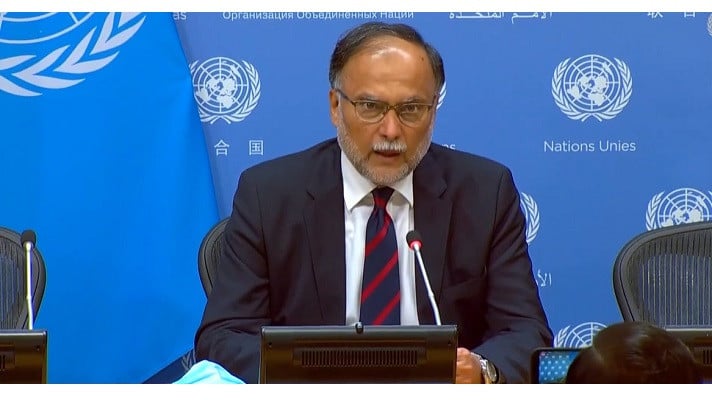
The controversial proposal to construct six new canals on the Indus River to irrigate the Cholistan desert in Punjab continued to soar relations between two key allies in the coalition government at the Centre, with the PPP on Saturday calling for greater clarity and accountability from the federal government.
Lashing out at Planning Minister Ahsan Iqbal for dismissing Sindh's objections to the canal project as "baseless", the PPP drew attention to the widespread protests across Sindh against the controversial canals, asserting that the people of the province have expressed severe reservations and resentment over the projects.
The PPP also questioned the federal government's failure to convene a meeting of the Council of Common Interests (CCI), the constitutional forum for resolving interprovincial disputes, to address water-related concerns.
PPP Sindh President Nisar Khuhro, calling the federal government's stance weak, raised serious doubts about the implementation of the 1991 Water Accord and questioned the feasibility of the proposed canal projects.
He questioned how Punjab could have surplus water to fill the 4,152-cusec capacity of the Cholistan canals, saying, "If Punjab does not have additional water, where will the supply for these canals come from?"
Khuhro also raised concerns about the remodelling of the Qadirabad, Sulemanki, and Rasul barrages to channel Jhelum River water into the Cholistan canals. He warned that this plan could necessitate continuous operation of the Chashma-Jhelum and Taunsa-Panjnad link canals, potentially rendering Sindh's lands barren.
The PPP leader reiterated Sindh's longstanding apprehensions, stating that the Chashma-Jhelum and Taunsa-Panjnad link canals, designated as flood canals, might be operated continuously to divert Sindh's water into the Cholistan canals.
He demanded an explanation from the federal government regarding these concerns.
Khuhro also accused the federal government of failing to fully implement the Water Accord1991.
"Although the federal government talks about provinces' water allocation under the accord, the reality is that it is not being implemented in its entirety," he said, pointing out that water distribution was not being conducted according to paragraph 2 of the accord.
He raised further questions about alleged water theft, particularly regarding the installation of pumping machines from Taunsa to Guddu Barrage to siphon off Sindh's share of water. He criticised the lack of action on recommendations from the ministerial committee, led by Khalid Magsi, which called for measures to curb water theft and improve monitoring of water flows.
Khuhro called for the installation of a telemetry system to ensure transparent water flow monitoring, noting that the federal government has yet to take this step.
He also questioned why the CCI, the constitutional forum for resolving interprovincial disputes, has not been convened to address these water-related issues.
He accused the federal government of repeatedly violating constitutional provisions and ignoring Sindh's legitimate concerns. "If water distribution is transparent, why hasn't the telemetry system been implemented?" he asked.
Echoes of Kalabagh Dam
Drawing a parallel with the Kalabagh Dam controversy, Khuhro reminded the government of Sindh's staunch opposition to the project during former prime minister Nawaz Sharif's tenure.
He said that the federal government had to abandon the Kalabagh Dam due to Sindh's resistance. The same fate awaits these new canal projects, he asserted.
He urged the federal government to heed the voices of Sindh's people, respect the Sindh Assembly's resolution and immediately withdraw plans for the controversial canals. "The people of Sindh will not allow even a drop of their rightful share of water to be stolen," he vowed.
Khuhro stressed that Sindh's lands are already suffering due to insufficient water supplies, with millions of acres rendered barren. He warned that the proposed canals would exacerbate the situation. "If Punjab wishes to cultivate its uncultivated lands, it should rely on underground water or use reverse osmosis plants to make saline water usable," he added.
Khuhro called on the federal government to honour the 1991 Water Accord, address Sindh's constitutional objections, and immediately withdraw plans for the contentious canal projects to prevent further damage to Sindh's lands and rights.
In a strongly worded statement, former Senate Chairman Mian Raza Rabbani urged the federal government and the minister to respect provincial autonomy enshrined in the constitution. He stressed that the rights of Sindh as a lower riparian region and the sentiments of its people cannot be ignored.
He noted that the decision to construct new canals to draw water from the Indus River for farming in Punjab's Cholistan region was not one that could unilaterally be taken by the federal government.
"This issue should have been and should be, brought before the Council of Common Interest (CCI) which the federal government has failed to call since inspection of its present tenure," the statement stated.
"The agriculture sector is the linchpin of the provincial economy, Sindh also contributes approximately 23% of the federation's national value-added; 41% of the national output of rice; 31% of sugarcane and 21% of wheat," he noted.
He lamented that Sindh has already been devoid of its just and rightful share in the distribution of water. "The provincial government has written to the federal government to summon a meeting of the CCI, which it continues to avoid."
"In view of the already destabilised political atmosphere, federal political tensions will only add to destabilisation, which can be harmful for the system as also for the federation."


1737272580-0/BeFunky-collage-(5)1737272580-0-165x106.webp)




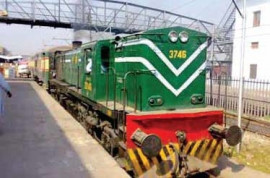
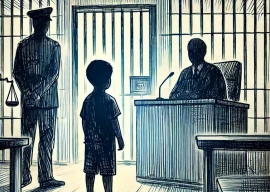



1737185197-0/Express-Tribune-(2)1737185197-0-270x192.webp)
1737188551-0/Untitled-design-(97)1737188551-0-270x192.webp)
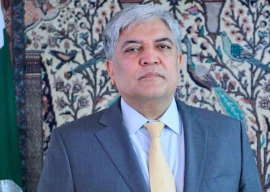
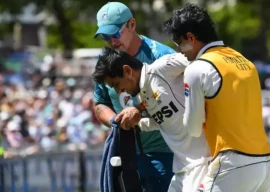
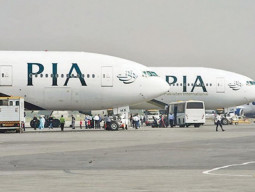
1737114296-0/Express-Tribune---News-Desk-(4)1737114296-0-270x192.webp)






COMMENTS
Comments are moderated and generally will be posted if they are on-topic and not abusive.
For more information, please see our Comments FAQ